Well, folks. I did it. By the end of this post, I will be caught up on reviewing the almost eighty books I’ve read since March of this year. I didn’t think it would be possible because whenever I tried to do it at other times this year, something always came up that prevented me from being able to write. Whew. It’s a good feeling.
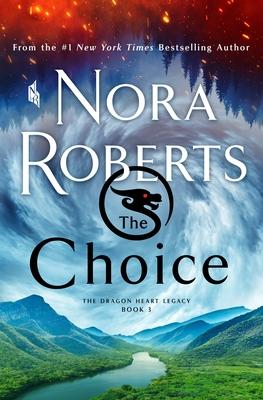
The Choice concludes Nora Roberts’ Dragon Heart Legacy trilogy, and I love it. I was thinking about what I wanted to say that isn’t just me gushing about how I love every word she writes. It got me thinking about what makes her stories so special. Some of it is her inclusion of dogs as family, and her love for dogs shines through into her characters. However, what struck me most during my ruminations is her consistent message that no one can succeed alone. Whether it is a coven, squad, pack, clan, family, alliance, or friends, we all need help. Moreover, we are all better together rather than by ourselves. It is an important lesson to remember as we still struggle with the aftereffects of the pandemic and living in isolation. What impresses me most is that Queen Nora does not force relationships where none should exist. If a character has irreconcilable issues with a parent or other family member, Queen Nora will often have that character cut ties with that family member. She allows her characters to grow and recognize that blood is not thicker than water. Family is not everything, and toxic relationships with family members are still unhealthy. Through her characters and stories, Queen Nora gives her readers examples of healthy relationships and the understanding that everyone is worthy of healthy relationships. In a way, reading Nora Roberts’ novel is an excellent form of therapy. With this conclusion of the Dragon Heart Legacy trilogy, there are battles and violence. People die, but more importantly, people live and celebrate life. They love and don’t let threats ruin their zest for life. Now more than ever, it is a great lesson that never grows old.
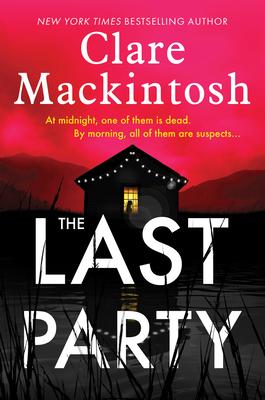
I enjoyed every Clare Mackintosh novel I’ve read, so when I saw she had a new book out in 2022, I jumped at the chance to obtain a review copy. The Last Party has all the hallmarks of Ms. Mackintosh’s previous thrillers, which is excellent. What is not great is that it is not a standalone novel. You would not think it to be a big deal because most of Ms. Mackintosh’s books do not have clean, happy endings anyway, so not knowing more about Ffion Morgan’s past or getting any resolution regarding her self-sabotaging tendencies should not be that big of a deal. For me, it was, which makes me sad because The Last Party is a good mystery/thriller. With plenty of twists and turns, successful red herrings, and enough secrets that you need a chart to keep them all straight, the story captured my attention and didn’t let it go. My guesses were always wrong, and I had no idea what would happen next. Yet, even as I felt drawn towards Ffion, all I could envision was another J.D. Robb-like series with sixty-three books or Louise Penny with eighteen in her series. I love series, but I love when they end even more. While I loved The Last Party, I’m not sure I have the desire or energy to commit myself to yet another series that may or may not have a finite number of books.
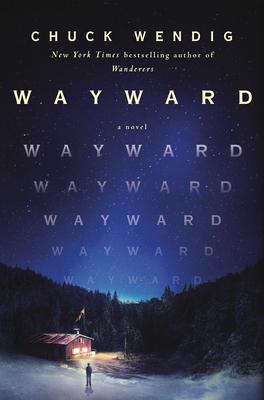
Wayward is Chuck Wendig’s follow-up to his 2019 hit Wanderers. Oh, what a difference three years make! The first book was scary but still mostly science fiction then. We hadn’t yet experienced the fear of a pandemic. We have that history to provide context to Mr. Wendig’s post-pandemic world three years later. While our world may not be as drastically different as his, we still better understand the loss of businesses and people that pandemics cause. Add to that base knowledge three more years of GOP hatred and lies, and Ed Creel’s power-mad narcissism is much more realistic and sickening to behold. This time, Mr. Wendig discusses artificial intelligence and its inherent dangers, adopting the adage that if something is too good to be true, then chances are it is. I enjoyed Wayward as much as Wanderers and appreciate that while they are a duology, they are two very different stories. This latest is a lot of “now what” questions regarding the world and everyone’s place. There is also quite a bit of reflection on what humanity’s responsibility is in this new world, which I enjoyed. It all feels very pertinent to our world as we continue to battle COVID, nationalism, and climate change. Many readers shy away from big books, but this series deserves attention. Mr. Wendig hits all the right notes in his world, which should have been much more fictional than it ends up being.
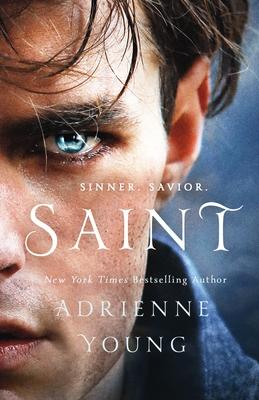
Before I get to the story, can we all take a minute to appreciate the cover of Adrienne Young’s Saint? Is it hot in here, or is it just me? Saint is a prequel to the world of the Narrows and the Unnamed Sea. This time, we flash forward to before Fable and West are even born and see the world before Saint becomes who he later becomes. We see him more innocent, if he ever indeed was, and more vulnerable. He is so different from the Saint we do know that I want to go back and reread Fable to see if our new knowledge changes the story in any way. Like the first two stories, I became wholly immersed in Ms. Young’s nautical world and tore through it in a few hours. I love her writing style and her characters and cannot wait to see what else she has planned for readers in the next year.
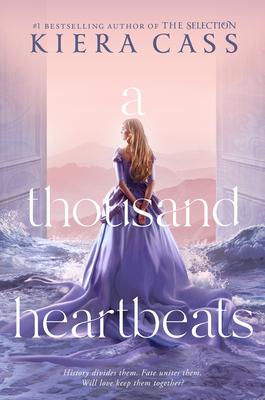
A Thousand Heartbeats is Kiera Cass’ latest novel and a rare standalone story. About a princess and a soldier on opposing sides, each would do everything possible to ensure they came out the victor, yet find themselves inexplicably drawn to one another. The synopsis calls this a story about star-crossed lovers, but that implies that there is no happy ending. In Ms. Cass’ world, there is nothing but happy endings, so I’m not sure the star-crossed lover descriptor applies here. Yes, Annika and Lennox are enemies, but it doesn’t stop the attraction. I thoroughly enjoyed their back-and-forth banter as well as their burgeoning feelings. A Thousand Heartbeats is a sweet romance with plenty of action and violence to please the darkest of hearts. I did not like that the answer to their problem is SO FREAKING OBVIOUS, but it takes them an entire novel to think of it. I get that the resolutions to YA novels tend to be obvious, but this was so blatant an answer that it frustrated me to no end and detracted from my overall enjoyment.
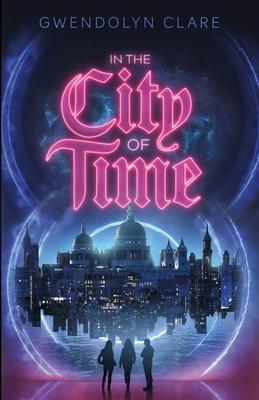
In the City of Time by Gwendolyn Clare, with its plot about three geeky young scientists and time travel, should be a novel I adore because I love it when stories get all nerdy and scientific. Unfortunately, I do not love when authors make up entirely new laws of science to explain their science fiction, which is precisely what Ms. Clare does in this latest novel. Her explanations of time travel are so far from scientific that I could not even begin to understand what she was trying to say. Sadly, her scientific explanations were not the only issues I had with the novel. Her use of polyamory feels a little opportunistic; it feels like Ms. Clare jumped onto the inclusive bandwagon without considering whether it is the right thing for the characters. That particular relationship doesn’t even feel like a romantic relationship to me but rather more like best friends with occasional benefits. And I don’t believe that someone from the 1800s would be 100 percent okay with polyamorous relationships and willingly enter into one after only a few minutes of thought. The lack of science alone made me hesitant to pick up In the City of Time every day. Add in the questionable inclusion choices, and it all made for a novel that was a slog to read.
